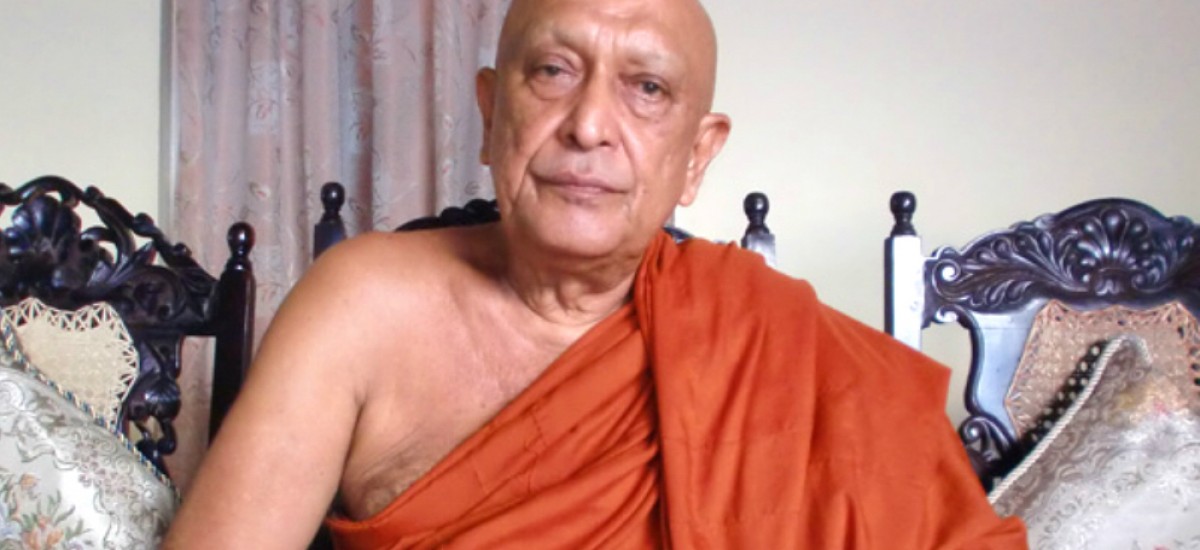Prologue
There was a time when Sobitha Himi did not appeal to the minorities the way he did at the time of his death. Some may still have reservations about some aspects of his past. The recurring challenges of civil governance that brought us together fifteen years ago, however, developed into a close friendship and enabled me to understand, respect and appreciate him as a courageous and timely gift to us all.
Religion and society
Among Sobitha Himi’s several contributions to the life of the nation, two outstanding thrusts speak clearly to religion and religious leaders in particular.
- He reminded us that if religion dares to offer solutions to our complex human challenges, it is compelled to engage with the harsh realities of life. For Sobitha Himi, human crises were far too crucial to be left to those whose main objective and delight is power. This is why for him, the role of sound religion, called instead to primarily serve the common good, was to expose and distance itself from the snares of power and work for a just and transparent society. In Sobitha Himi’s world view there was no room for religion to either withdraw from social realities or turn into a weapon of hatred, violence and division.
- In his engagement with social issues, Sobitha Himi demonstrated a spiritual rhythm that religious leaders are to take note of. He listened with sensitivity to the grievance and hardships of the people and applied the Dhamma to what he heard. In other words he responded to the hypothetical but helpful question, ‘what would the Buddha say and expect?’, if and when confronted with these contemporary challenges.
Cries of the people –wisdom of the Dhamma
The first beat of this rhythm came spontaneously as he had his ear to the ground and was connected with people, and he exercised the second through his remarkable ability to translate the wisdom of the Dhamma into a language that embraced all; a skill that all religions are to acquire. In other words he preached the Dhamma and talked politics at the same time. This is why he was understood not only by Buddhists, but by Hindus, Muslims, Christians and the secular world as well.
Self-denial for community well being
A spirituality that helped him to stay faithful within these thrusts was his disregard; almost contempt, for status and position. By rising above these enticements that obsess and destroy so many, he exposed the fallacy that political office is the pinnacle of life. He taught instead, that losing ones’ self for the good of others’, is the most noble option available to humans. This is why his life was a source of encouragement to the countless unsung Sri Lankans, content to live with dignity and integrity wherever they are placed.
A Prophet in our midst
In-spite of several worrying set-backs in todays’ civil governance, we are now able to breathe, largely because of Sobitha Himi’s pro -people influence. His visionary leadership certainly saved us as well as those in divisive politics, from the extremes that divisive politics can take us to. For many Christians, he was truly a prophet in our midst. These were persons who in the tradition of the Bible stood for the cause of the oppressed against unrighteous rulers. They were often contrasted with the false ones, who instead sought favours and goodwill from deceitful regimes.
Model for reconciliation
This prophetic model of leadership that inevitably brings change, respite and fresh opportunities, offers a lasting lesson. It teaches that the way to national reconciliation and integration after a substantial period of arbitrary violence and entrenched impunity, is to be discerned in a collaborative and sustained response to social injustice. To stay on this path is to honour our common humanity as well as the man who brought honour to the yellow robe.
Epilogue
Sobitha Himi’s early ten-point proposals for democratic change did not refer to the Tamil problem. When this was pointed out, he patiently explained that it would be addressed after some degree of political and social stability had been realised.
He returned to this obligation, after January 8th, to influence a decision of the Congress of Religions to once again revisit this long overdue grievance, and also came up with a novel approach on how this could be done. Rather than meet political leaders or the media separately, as was the practice, he suggested that we should engage the Ministers of Justice and Resettlement together at an open media conference.
At this conversation at the ministry of justice in early April this year, the Congress of Religions called for and queried the delay in justice for the Tamils of our land. Throughout the conversations Sobitha Himi was his typical, charismatic self, urging that judicial action against Tamil detainees be expedited, that those without charges be released, that land acquired from Tamil civilians be returned and that details of missing persons be made public. His passion on that occasion was as strong as his passion to liberate the country from the powers of the executive presidency.
May his memory lighten our darkness, convert us into disciples of the truth and bring us peace.
With Peace and Blessings to all,
Bishop Duleep de Chickera

